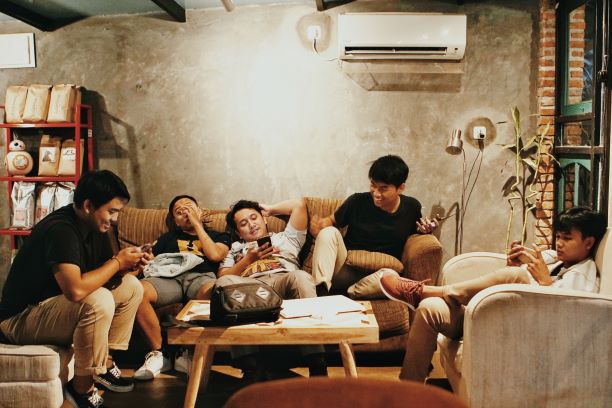Community Development
“What should young people do with their lives today? Many things, obviously. But the most daring thing is to create stable communities in which the terrible disease of loneliness can be cured.”
― Kurt Vonnegut, Palm Sunday: An Autobiographical Collage
- Page to the Community Development Network
Contents
Definitions
[Here, we will take stock of how others have defined these terms, and arrive at our own definitions so that it can encompass the wide array of work and the relevant key constructs (e.g. participation, empowerment, social justice etc). Also how different groups define it could vary, eg government, social workers, community workers etc, so we should take note of this]
Community Development
The purpose of community development is to create 'solidarity' and 'agency'. The approach is guided by the principles of encouraging self-help, attending to subjectively felt needs and supporting participation (See Bhattacharyya 2004[1] or a summary here).
S Vasoo
S Vasoo has defined it as "planned changes undertaken through the efforts of the government, corporate sector and non-governmental organisations (NGOs) or voluntary welfare organisations (VWOs) to promote community better and and community problem solving" - ostensibly the goal is to promote self-help.
Empowerment/Social Justice Model
A democratic process where the community comes together to take collective action to determine its own needs and how they should be met (Ife, 2016; Ledwith, 2016).
Expounded by the principles of social and environmental justice, Ledwith (2016) describes community development as the practice of “seeing the extraordinary in the ordinary” rooted in the vision of a far, just and sustainable world (p. 5).
Core values: Empowerment, co-operation and collective learning, espousing the ideology of equality including respect, dignity, trust, mutuality and reciprocity (Ledwith, 2016).
"Community development is a practice-based profession and an academic discipline concerned with the organisation, education and empowerment of people within their communities" (International Association for Community Development) [2]
Asset-Based Community Development (ABCD)
Coined by Kretzmann & McKnight (1996), it refers to the practice of discovering a community's capacities and assets as a means to sustainable community development. As opposed to a needs-based approach to looking at communities, which sees and keeps people as dependent, in a perpetual state of survival, helpless and even performative agents of a social service/aid system, taking an ABCD approach means taking account of the following "assets" and how they can help solve social problems:
- Gifts: This refers to talents, skills and capacities of community residents - everyone is assumed to have something to offer one another. From labelled people to youth to the low income, all individuals are regarded as full participants in the community-building process
- Associations: Refers to informal social associations in entities such as social groups, places of workship, neighbourhood associations etc.
- Institutions. Comprises private businesses, public institutions, VWOs and other more formal entities.
Mapping these assets then allows them to be more effectively employed to meet communities' internal needs. Such a method will inevitably be very relationship-driven.
NOTE: This does not mean that communities do not need additional resources from the outside - rather, outside resources will be more effectively used and invested when community assets are already fully mobilised, and when communities have a say in the conditions by which these resources are obtained.
Community Work
- Not the same as community development, which refers to the processes of developing community structures
The National Social Work Competency Framework defines it as a direct practice that involves direct contact with clients and beneficiaries at the community level to address their needs. The key responsibility area for community work in the NSWCF is to: “Develop new community support systems which bring about enhanced psycho social well-being of the community.”
Community Engagement
Background and History of Community Development in Singapore
Issues Faced by Community Workers / Organisations
Issue 1 Research Capability of Community Workers
Existing Resources
Lee Choon Guan Research Fund
https://www.fas.nus.edu.sg/swk/research/mrs_lee_choon_guan_trust/lee_choon_guan_grant - serves to promote social service research among practitioners in the community. Successful applicants will work with an acad. from social work department in NUS and they get access to NUS research resources. This fund is limited to practitioners with social work qualifications.
Ngee Ann Polytechnic Diploma in Community Development
NUS Chua Thian Poh Community Leadership Programme Certificate in Community Development
Gaps and Their Causes
Possible Solutions
Community Fellowships (e.g. https://www.artstrategies.org/programs/creative-community-fellows/)
Issue 2 Community Conflicts
Recent examples - 'neighbour from hell'
Existing Resources
Community Mediation Centres under Ministry of Law
Gaps and Their Causes
Possible Solutions
Issue 3
Existing Resources
Gaps and Their Causes
Possible Solutions
Issue 4
Existing Resources
Gaps and Their Causes
Possible Solutions
Local Initiatives
Cassia Resettlement Team -- See opinion piece in Today written by CRT
Lin Shiyun and team. -- a community artist and her works in and with the community include: Let’s Go PLay OutSide! (https://artswok.org/article/letsgoplayoutside), The Rubbish Prince (https://www.facebook.com/therubbishprince/) and more.
Good Neighbour Award -- Launched in 2009, the Good Neighbour Award recognises and honours residents who go the extra mile to enrich their community with exemplary acts of care and neighbourliness. The Award is jointly organised by HDB and People's Association (PA), and supported by the Singapore Kindness Movement (SKM) and Singapore Press Holdings (SPH).
Friendzone -- Helps creating community amongst young adults in their neighbourhoods. It begins with a hangout at the void deck where you will meet other interesting people in your hood and connect with them over meaningful conversation.
Resource Directory
Stories
Our Grandfather Story
https://www.youtube.com/channel/UCsiZ4QJyWTdbtB2cfyDPApA/featured
A digital video publisher that documents, curates and retells authentic stories across Southeast Asia.
The Hidden Good
https://www.thehiddengood.com/
A team of content curators and creators
Professional Associations
International Association for Community Development
Democratic Innovations and Civic Participation
https://democracycollaborative.org/
Founded in 2000 at the University of Maryland as a research center dedicated to the pursuit of democratic renewal, increased civic participation, and community revitalization
Resources on building community wealth, set up by the Democracy Collaborative
"A global community sharing knowledge and stories about public participation and democratic innovations"
Sorted by case studies and approaches (eg participatory budgeting, deliberative polling, citizen's jury). You can post your own cases too.
ABCD Resources
https://www.abundantcommunity.com/
Useful starter kit for practitioners who want to do Asset-Based Community Development
Saul Alinsky texts:
Voluntary Organisations that do Community Work
South Central Community Family Service Centre
Marine Parade Family Service Centre (comm outreach team working with the homeless at East Coast)
Tsao Foundation Community for Successful Ageing (ComSA)
References
- ↑ Bhattacharyya, Jnanabrata 2004 “Theorizing Community Development”, Community Development, 34 (2): 5-34
- ↑ https://www.iacdglobal.org/

